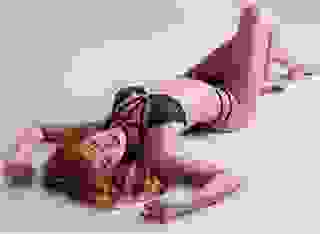- Non-Erotic
- Seeking Twilight Ch. 03
Note: You can change font size, font face, and turn on dark mode by clicking the "A" icon tab in the Story Info Box.
You can temporarily switch back to a Classic Literotica® experience during our ongoing public Beta testing. Please consider leaving feedback on issues you experience or suggest improvements.
Click hereTuesday, May 24
The Kings of Minnesota
Bad press had never been a problem for Carl Fenton. As Minnesota's most prominent, most successful, most expensive criminal defense attorney, he had always experienced the best publicity money could buy. Always, until this morning. This morning, for the first time in his life, Carl Fenton was reading a news story with his name in it that he didn't like; in fact it was very upsetting.
The last twenty-four hours had been very upsetting for Carl Fenton. Only yesterday he had been informed that his son, his only child had been brutally murdered. He had been forced to meet with his first ex-wife, to whom he'd not spoken in eight years, for the sole purpose of identifying their son's body. Needless to say, yesterday had been the worst day of his life.
Today wasn't shaping up to be much better. He had awoken this morning in the armchair in his study with the worst hangover he'd had in years from drinking himself to sleep the night before. And now he was reading that his son 'was murdered by the same woman who had killed Martin Taylor only the week ago', and 'the same defective detective who had investigated the Jack Richards disappearance for a month without progress was on the case'. It was all very upsetting, which meant it was time to call in the cavalry.
For Fenton, the cavalry were four particular associates. Associates, not friends; being a lawyer, Fenton had no friends, only associates. He still had enemies, though, and in great supply.
The four associates Fenton had called were Roswell Harker, publisher of the 'Northern Star', the second highest circulating paper in Minnesota; Reverend Ezekiel Taylor, founder of the Organization of Traditional American Values and father of the previous victim; Edward Andrews, the Mayor of Minneapolis; and Harlan Prentiss, the Governor of Minnesota. These five men, including Fenton, had known each other for more than half their lives, and had always come together to assist each other when the time called for it. This would now be one of those times.
Harker and Andrews arrived almost simultaneously, followed shortly by the Governor. The Reverend, however, seemed to be taking his sweet time pulling himself away from the plans for rally that would be held at his church later that night. When he rang the bell, Fenton took his own sweet time answering the door, knowing that Taylor would, undoubtedly be in particularly holier-than-thou mood, as was his custom when they met. Fenton could not have been more right, or more annoyed.
"G' Mornin' Carl," Taylor said with a nod through his thick southern drawl.
"It may be morning, Reverend," replied Fenton, "but it sure as hell isn't good."
Fenton showed Taylor into the house.
"Before anything else is said this morning', Carl," Taylor said as they walked through the house, "I'd like to say how very sorry I am for the loss of your son, and I pray that you and your ex-wife may find solace as I have in God's love, remembering as I have that he keeps the soul of your son in his grace, and I pray that the swiftest, most righteous justice is visited upon those responsible for the deaths of both your son and my own."
"Spare me the televangelist bullshit, Zeke, I gave at the office. Besides, this is bigger than just you and me, or our sons."
Fenton opened the door to the den, revealing to the Reverend a very tired publisher, a very annoyed Governor, and a very worrisome Mayor, who then said, "About damn time."
"Good morning to you to Mr. Mayor," said Taylor, maintaining an air of politeness, then turning to the other two men, "Governor, Mr. Harker."
"Good morning Reverend," Harker responded, actually genuine, "You and your wife have been in my prayers since I had heard of your son's death."
"Thank you, Roswell. You and yours have been in my prayers as well."
"Alright, enough!" said Governor Prentiss impatiently, "Now, Carl, what did you get us all here for today?"
Fenton threw down his copy of the "Star Tribune" on his desk and said, "Two words: Dennis Jenkins"
"Who the fuck is Dennis Jenkins?" Mayor Andrews asked nervously.
"Dennis Jenkins, gentlemen," Fenton explained, "is the snot-nosed, rookie, rag-writing punk who is on the verge of attracting undo attention to the connections that the five of us share to each other."
Prentiss and Andrews looked at each other nervously while Reverend Taylor merely stared at the paper mulling over the possibilities. Harker, however, was skeptical.
"I'm sorry, Carl, I thought that we were here to discuss the untimely murders of your son Derek and Reverend Taylor's son Martin. Now, is this as important as you're insisting, or are you just trying to find something else to do with your grief and anger besides getting drunk?" he asked.
"Lay off the therapy, Ross," Fenton responded angrily, "you're starting to confuse yourself with your shrink."
"I said that's ENOUGH!" Prentiss exclaimed, and he meant it. Taylor and Andrews may have put up with Fenton and Harker's crap, but not Harlan Prentiss. They had business to deal with and, god dammit, they were gonna get it done! "Now, if this kid is as close, as dangerous as Carl says," he continued, "then that's easy enough to fix."
"What about this killer?" Andrews asked cautiously, waiting momentarily for a response from the others before continuing. When no one said anything, he said, "We know that this Jenkins kid isn't the first to have found connections between some of us. What if these murders are retaliations? This could even be connected to Jack, jr."
"The only one responsible," Fenton reassured, "for the murder of Jack jr. was Jack sr. and we all know it. However, we also know that if someone started snooping around, it could make things very . . . unpleasant for all of us."
"But that still leaves two of us havin' lost sons," said Taylor.
An awkward silence fell between the five men.
"Alright," said Prentiss, finally breaking the silence, "Andrews, you get on the phone to that chief of yours and get on his ass, meanwhile I'll get on the phone to the feds, and have them send someone out here."
"Do you really think that that's a wise course of action? What if he finds something he shouldn't?" asked Andrews.
"I'll have them send a specialist."
"What about this cop in the article?" Fenton asked, "He's the same one who worked on Jack's case."
"Point taken," agreed the Governor, "We need him out of the picture. Something else for you to talk to your chief about, Andrews."
"Fine, but that still doesn't take care of our problem with Mr. Jenkins," Andrews replied.
"What if we pull a 'bait and switch'?" Harker asked.
"How so?" asked Prentiss.
"Well, it's obvious from the article," Harker explained, "that the reporter's focus is the Detective, not the victims, much less the five of us. If we could find a way to keep him focused on the Detective, it would keep his focus from finding us."
"Good idea. Andrews, have your people work it out, then get back to me. If there is nothing else," Prentiss said, looking to the others and getting no response, "then good day gentlemen, I have a state to run."
Prentiss left, followed quickly by Andrews and Taylor. Harker followed more slowly, and paused briefly at the door to the den.
"Carl," he said, "I just wanted to say how sorry I was to hear about Derek. No one should have to lose a son."
Fenton sat back down in the chair that he woke up in, and turned away from the door.
"You always were good at being nice without sounding like a suck up, Harker," he said coldly.
"Do us all a favor, Fenton, and lay off the Tangueray."
Harker stormed out, slamming the door behind him. Fenton sat back, and knocked back his drink, paying Harker's remarks no mind.
Roswell Harker did not like Carl Fenton. Oh, he felt sorry for Carl's lost; he had honestly meant what he had said. But he did not -- he could not feel anything for Carl other than complete, loathing and disgust. He felt that Carl embodied everything corrupt, crooked, and amoral, which, he guessed, makes it almost fitting that Carl was a lawyer.
Harker quickly pushed those thoughts out of his mind. No, he thought, those were unclean, unchristian thoughts, and he was a Christian, a God fearing man. He could at least say that he was a Christian man, even if there were aspects of his life that he was less than proud of.
There were times, however, when Harker wished that he could be more like the others, like Taylor or Prentiss, even Andrews. He would see Reverend Taylor and wish he could stand by the strength of his convictions and of his faith through every facet of his life. He would watch the Governor and wonder why he couldn't simply walk into a situation and take charge of it the way Harlan did. Even little, squirming Eddie Andrews was able to see situations from angles no one else could, even if they were due to his paranoid cowardice. How that man ever became Mayor, Harker thought, chuckling enviously to himself, I'll never know. But all Harker saw in himself was a man falling short of the man he could be, the man he knew he needed to be.
Harker saw himself as being only less-than-moderately successful, and considerately less so than the others. He was merely the publisher of a two-bit, second-rate "newspaper", (as if calling it that didn't degrade and demean all legitimate news publications) specializing in what he and his staff referred to as "Entertainment - Journalism", but what he knew to be "yellow journalism"; it was a tabloid, and a lousy one at that. He saw himself, on his harder days, as a "printer of preposterous propaganda", and today was feeling like one of those days.
Harker returned to his paper. He greeted his secretary with a hollow smile that he saved just for her, and walked past her without hearing a single word she was saying. So when he opened his office door, he was surprised, if not slightly annoyed, to see someone sitting across from his desk, quietly reading. Harker quickly closed the door to his office, still standing outside of it, then turned to his secretary and asked her who he was.
"Well, Mr. Harker, I tried to tell you sir, is name is Reginald Brianski. He's --"
"What's he want?" Harker interrupted.
"He's from the 'Tribune' sir," she explained, "He said he needed to see you, sir, he said it was very important."
"That's all he said?"
"Yes sir."
Harker stared at the door for a moment, contemplating his course of action, and then said to his secretary, "Hold my calls."
He reached for the door knob, but missed it as the door swung open, revealing Reggie waiting on the other side.
"I'm sorry; I hope I'm not interrupting. I heard raised voices," said Reggie, genuinely courteous.
Harker looked him over for a moment, trying to get a bead on him, and then said, "No, it's quite alright, Mr. . ."
"Oh, yeah, Reginald Brianski, Star Tribune, or at least, for the moment."
"For the moment?" Harker asked, walking back to his desk, "Are you going somewhere?"
Harker indicated for Reggie to sit down.
"Maybe by force," Reggie mumbled, then, more directly, "Mr. Harker, I'm here because I have a problem, and you're the only one left that I could go to."
"Really," Harker said, suspecting something.
"Yes. My problem is" Reggie explained, dropping a copy of his article on Harker's desk, "that I know the truth about these murders, but no one will listen to me. Either they refuse to believe me, which is hard enough, or worse, they know that I know the truth and are trying to keep me quiet."
"Why would anyone. . . ," Harker paused, rethinking his question, "Why don't you just tell me what you know."
Reggie suddenly got very nervous, stood up, and began pacing frantically about Harker's office. Harker stood, unsure of what Reggie was doing. Suddenly, Reggie stopped pacing and looked straight at Harker.
"Do you believe in God, Mr. Harker?"
This question caught Harker off guard.
"What?" he asked, and then stammered, trying to answer, finally blurting out, "Yes, yes I do. Why?"
"Because these murders are each an affront to God!"
Harker was also not expecting this answer.
"Every murder is an affront to God, Brianski, so I understand your point of view, but not your point."
"My point," Reggie explained, "is that these murders are different. They are not only an affront to God because they are murders, but also because they are being perpetrated for the soul purpose of insulting and mocking God. They are being committed by an unholy being, an agent of the Devil!"
Harker just stared at Reggie for a moment, and then simply said, "Get out."
"Wait, let me explain--"
"Now!"
"NO! JUST . . . Just hear me out," Reggie pleaded.
Harker reached for the intercom, but hesitated. He looked up at Reggie, who merely said, "Please."
"You are insane, Brianski, and you need professional help."
"Look, I know how crazy this sounds--"\
"Do you?"
"Yes, I do," Reggie exclaimed, still pleading, "but the evidence is there, staring us in the face."
"How do you mean."
"Okay, look," Reggie explained, "both victims were drained of at least three quarters of their blood, but police found no blood at the scene. The only wounds on either body were two punctures directly into the jugular, along with bruising patterns around the punctures that show that they were bite marks."
"And you think that this proves that they were killed by . . . what you think killed them?" Harker asked, unable to say the actual word.
"Among other things, yes."
"Other things?"
"Both Martin Taylor and Derek Fenton were murdered on a Sunday, both with their sin still on them, both being first born sons, and Martin Taylor, the first murdered was the son of a servant of God. The fangs, the blood, the deep-seeded hatred of God; it all fits."
"That's it?" asked Harker.
Reggie hesitated for a moment.
"No . . . a month ago I was writing about the Jack Richards disappearance when I was attacked . . . and bitten."
"Bitten?"
Reggie pulled the collar of his shirt away from his shoulder to reveal a bloody bandage. He pulled the bandage away to reveal two quarter inch punctures less than an inch apart. The wounds looked fresh, bloody. The skin around the wounds is swollen and dark red. The veins leading away from the wounds are also raised and dark, the skin between the veins paler.
"I fought back, and when he went to bite me he got my shoulder, not my neck, and he infected me with something."
"Infected you with what?" Harker asked, genuinely afraid, and almost starting to believe Reggie.
"No one knows. I've been to see five different doctors in the past three weeks and none of them can figure it out. What they have told me is that my red blood sells have become highly anemic, my t-cell and white blood cell counts are down, my skin pigment is dying and my skin and eyes are becoming more and more light sensitive. My whole body is shutting down," Reggie said, then he looked Harker square in the eye, with all the determination he could assemble, "I'm dying, Mr. Harker, no one can tell me how, but I know why. I've been infected, and the only way for me to live is to become like them, but if I do that, I sacrifice my soul, so all I can do is pray to God that he saves my soul from this contagion."
Harker just stared at the wound on Reggie's shoulder. Reggie became self-conscious, and covered it back up, then sat back down, and said, "Look, Mr. Harker, I know that this is hard to believe, but these things are real, they are out there, they are killing us, and people need to know."
Harker thought for a moment, trying to absorb everything and trying to keep himself from believing Reggie. Then he remembered what he was going to ask.
"How'd you get the information about the victims?"
"I . . . I hacked the paper's e-mail system and stole a copy of the medical examiner's report from another reporter," Reggie confessed.
"Jenkins?"
"Yes."
"Do you know how he obtained a copy of the medical examiner's report?"
"No."
Harker looked over the article, thinking for a moment. Then the idea hit him.
"Alright, I print your article, front page even, but I need you to do something for me. I need you to find out how Jenkins got the report, and get back to me tomorrow."
Reggie hesitated, and then said, "No problem."
"Alright, then, you better get out of here before Garvey or anyone else at the paper notice that you're not there," Harker said, "and take the back exit. You don't want to take a chance on someone you know seeing you."
Reggie stood up and walked to the door, but, before he did, he turned back, looked at Harker, and said, "Thank you, Mr. Harker."
Harker looked up from the article.
"For what?"
"For listening. You didn't have to, so," Reggie said, "thank you."
Reggie turned to leave when Harker stood up and said, "Reggie, wait."
Reggie turned back.
"Reverend Ezekiel Taylor is hosting a prayer rally tonight at his church. I'm going to be there. You should come. If you find out what I've asked, you can tell me there, otherwise, you can just tell me tomorrow, but either way," Harker said, "you should come to the rally."
"Sure, thanks."
As Reggie left Harker's office, Harker sat back down and looked back over the article, reading the title over to himself, "Vampires in Minneapolis." Poor kid, he thought as he read, he's out of his mind.
Reggie took Harker's advice and headed down the back fire stairs to the ground floor and out the back exit to the side alley. He cut through back alleys and side streets, pausing around corners to look back and, more importantly, catch his breath; he hadn't been running, in fact he was walking rather slowly, but he still needed to catch his breath. Not a single time did he see a single person following him but he knew, he knew, that someone was watching him, following him.
His heart was pounding in his chest and he started to feel dizzy and nauseous. He leaned back against the wall, feeling the cool brick through his shirt and the cool breeze in the shade on his face. His head fell back against the wall and his eyes closed as the world around him spun away into nothing.
The world suddenly imploded back around Reggie when some punk grabbed his collar, pulled him away from the wall, then slammed him back up against the wall, stuck a knife up under his throat and screamed in his face, "ALRIGHT, ASSHOLE, GIMME YER FUCKIN' MONEY!!!"
Reggie's heart raced, his pulse pounding like a jackhammer, his head on fire, his eyes half closed, slipping somewhere between conscious and not. He felt the punk push up on the knife and the blade start to cut his throat. His eyes shot open as he inhaled sharply. His hands snapped up, one hand grabbed the punk's knife hand, the other grabbed his throat. He squeezed the punk's wrist and pulled the knife away from his own throat. He felt the punk's pulse accelerating in his hands, felt the punk struggle and squirm against his own grip, and he felt something deep inside himself welling up. Something primal, something animal, something powerful, and when it hit his throat, he screamed so loudly, gutturally, and intensely that it shook his entire body. He pushed off from the wall and shoved the punk all the way across the alley, practically lifting the punk up off the ground. He slammed the punk against the other wall, slamming the punk's wrist repeatedly not only until the punk dropped the knife, but until he felt the bones in the punk's hand crack and shatter. He felt the punk's blood running down his own hand, smelled it, basked in the warmth of it. He squeezed the punk's throat even tighter, feeling the punk's airway close, feeling him struggle for air. He felt the punk pulse slow and shallow.
And then Reggie looked at the punk's throat, and saw a crucifix hanging from it. He looked into the punk's eyes, saw his pleading eyes, saw a soul begging for forgiveness. His grip loosed, and the punk collapsed at Reggie's feet. The punk cradled his broken hand and gasped for breath, as if trying to learn how to breathe all over again. Reggie watched the punk, backing away, heart still pounding, but now, the primal power that he had felt was gone, and only the sickness remained. Reggie stumbled back against the alley wall, nearly hyperventilating. And then he threw up. He crouched over and vomited, not even noticing that the punk had scrambled to his feet and run away.








